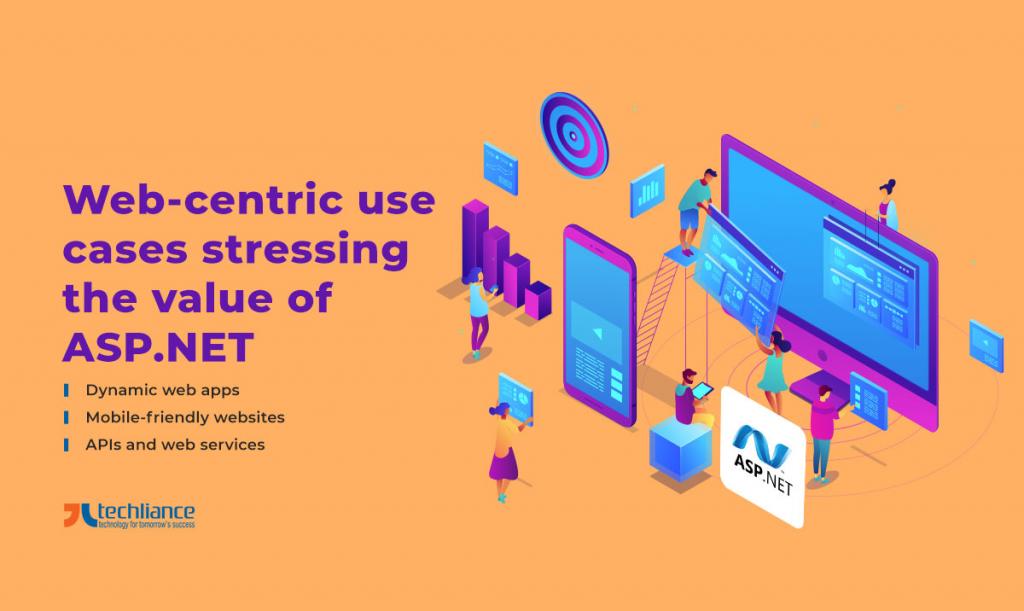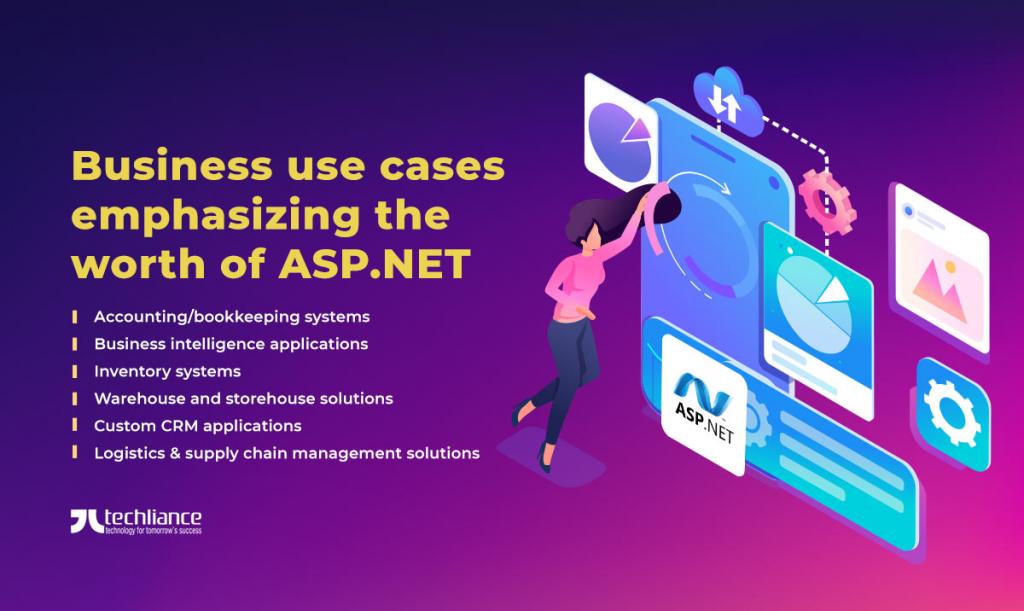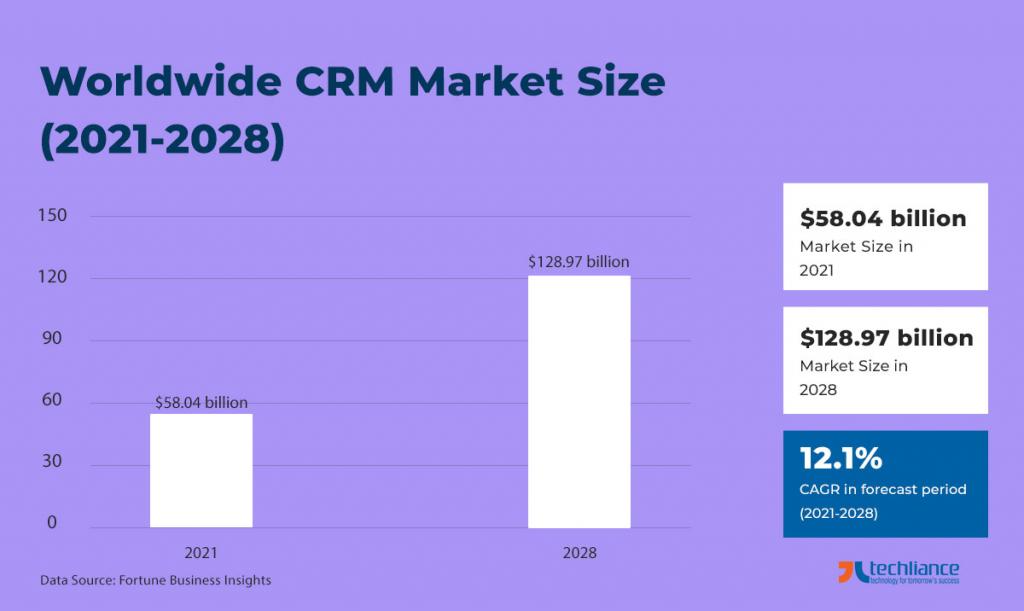Created by Microsoft, ASP.NET is an open-source web framework. This is mostly used for creating awesome web applications, websites, web services, and web-based business solutions. Additionally, its successor ASP.NET Core is a modular and cross-platform web framework.
ASP.NET Core enables web apps to easily run on all platforms including Mac, Windows, Linux, and Docker. So, with the majority of businesses online, the future of web development and enterprise solutions in .NET is extremely promising. Thus, it’s opening up newer avenues for ASP.NET that remain an ideal choice for web apps and web-centric business solutions.

Progression of ASP to ASP.NET & evolution to ASP.NET Core
It was in 1996 when Microsoft first unveiled its Active Server Pages (ASP) technology. Also known as classic ASP, the construe scripting language created unstructured code that wasn’t easy to write. On top of it, debugging and maintenance were quite difficult tasks to perform as well.
Typical ASP websites or apps used to become more complex when they grew in size. It occurred because of the distasteful mixing of code, formatting, and content. The maintenance and development costs were very high because of the spaghetti code.
Things changed quite dramatically after the emergence of ASP.NET for good in 2002. This web development platform from Microsoft offers services and structures to create different web applications of almost all sizes. Because the productivity can greatly increase with the division of the presentation and application coding.
With compiled code, performance tends to improve manifold. Also, reliability gets a boost with the .NET environment and C# programming language. Thus, development in ASP.NET consumes less time and proves very cost-effective.
In 2016, Microsoft began succeeding ASP.NET with ASP.NET Core, which permits the creation of multi-platform applications. ASP.NET facilitates coding in several powerful CLI languages; especially C#, F#, and Visual Basic .NET (VB.NET). In effect, it carries nice programming practices and demolishes the utilization of unstructured code.
Now, multi-disciplined and highly trained programmers are available for every project as ASP.NET has made things a lot easier. Its simple and easy-to-use model significantly replaces the nightmare of maintaining and debugging ASP code. So, developers can do with much comfort the tasks that were quite complex and expensive in the past.
Web-centric use cases stressing the value of ASP.NET
ASP.NET is the web technology of around 8% of websites as of 2022. Firstly, we talk about how ASP.NET makes websites and web-based applications a truly amazing experience. The framework allows developing products for various web-centrical use cases that include the following.
- Dynamic web apps
- Mobile-friendly websites
- APIs and web services

Without further ado, let’s cut down the chase and look upon these usages of ASP.NET in 2024 briefly.
Dynamic web apps
A dynamic website in ASP.NET analyzes your data model to general web pages dynamically for each table. In effect, this is a website with minimal or no additional code. Modern websites such as Yahoo or MSN are dynamic and they cater to each visitor’s need for a better service.
This is the aspect that businesses will probably want to get. So that the visitors get a customizable and highly personalized experience through their websites. It can be as simple as having the website be displayed in multiple languages based on regional preferences. Or have the look and feel of the dashboard customized once the users log in to the website.
Mobile-friendly websites
Although ASP.NET does not support mobile app development. But it can noticeably enable the development of mobile-responsive websites. Thus, it’s a great thing for businesses to create websites that are easily viewable on tablets and various smartphone devices.
Since around 57% of users access the internet through mobile phones. Also, a lot of customers prefer using mobile-friendly websites today. So, it is necessary to consider the responsive website aspect in your website development project.
ASP.NET has a full-fledged authentication system that includes libraries, a database, and template pages for handling logins. Moreover, it includes multi-factor authentication and external authentication with Google, Twitter, and more. Any website that is accessed through a mobile device can be made to interact the same way.
Users can interact, login, and perform all the operations that they normally require while accessing a website through a laptop/PC. Therefore, while developing a website through ASP.NET, keep in mind to optimize it for mobile. Thus, it caters to a wider segment of the audience who prefer accessing the website through their phones.
The auto-generated web pages of dynamic websites provide display, insert, delete and edit capabilities for each table. So, it is a powerful way to connect to your audience. ASP.NET makes it possible through the important feature of the scaffolding mechanism.
APIs and web services
ASP.NET enables the creation of web services and APIs. They play an important role in making websites enabling the display of products, information, and assorted content in real-time. In this regard, your website integrates with third-party software that helps you pull accurate data in real-time.
Some common examples are stock exchange rates, temperature, gold prices, etc. Web services have two main types: SOAP (Simple Object Access Protocol) and REST (Representational State Transfer). XML-based web services help in communication between different software across the Internet through SOAP architecture.
It defines how XML-based messages will be sent and received across applications. Also, there is the concept of Web Services Description Language (WSDL). It summarizes all the services in XML and UDDI (Universal Description, Discovery, and Integration). The latter is an XML-based standard for the creation and distribution of web services.
XML web services are platform-independent with stateless architecture. Therefore, they provide information based only on the input parameters supplied to them. They are also highly scalable thanks to extremely light-weight XML format.
Service-oriented architecture (SOA) takes the concept of web services forward. Also, its variant microservice architecture organizes an application as a collection of loosely-coupled services. Web APIs and web services deliver ways of communication between different online businesses.
Business use cases emphasizing the worth of ASP.NET
Here are some example cases highlighting the significance of ASP.NET for businesses.
- Accounting/bookkeeping systems
- Business intelligence applications
- Inventory systems
- Warehouse and storehouse solutions
- Custom CRM applications
- Logistics & supply chain management solutions

Next, we contemplate these example business cases of ASP.NET during 2024 shortly.
Accounting/bookkeeping systems
In today’s world, keeping tabs on accounts, payments, balances, and bookkeeping ledgers are extremely crucial. So, businesses need to maintain a consistent and up-to-date account balance. This is important to understand the total cash flow (the amount spent versus incoming revenues).
It enables you to have a holistic picture of profit and loss. ASP.NET helps companies to create performant account management systems. So that business owners can know about the overall finances of their companies.
This is also important to visualize various types of data in the form of different reports. Also, it greatly helps the C-suite management in decision-making. They and relevant stakeholders can understand the kind of direction to take up in plans for the business.
Business intelligence applications
Today’s fast-paced world widely welcomes the concept of business intelligence (BI). So, thanks to data analytics, companies can take powerful decisions. Because you can query, sort, and analyze data to create insightful information.
ASP.NET greatly aids in creating various types of BI applications. For example, reporting, online analytical processing, digital dashboards, data mining, and business activity monitoring. The purpose is to create customizable solutions that help the intended audience with greater visibility.
Business intelligence applications help policymakers in taking decisions that match shifts in their companies. Research forecasts the worldwide business intelligence market to reach $43.03 billion in 2028 from $24.05 billion in 2021. While 50% of finance companies use BI and analytics to identify the direction they want to take in their business.

Inventory systems
Websites are not just visually an interface for users to read information from. Rather, they have become much more. Take the example of online eCommerce stores that sell various kinds of products.
They even allow to onboard vendors and maintain their product inventories. Accordingly, common buyers can then easily purchase products. So, it’s a great way for buyers and sellers to interact through a virtual marketplace.
ASP.NET is a web framework to allow developers to create inventory applications. Since this prevailing framework allows users to freely interact with the websites. Thus, it’s easy for users to have access and role management as their favorite roles within the system.
Businesses can manage entire product catalogs and their quantities. Also, they can create purchase orders for procuring various items. Therefore, it enables data entry operators to manage inventory. For instance, the PLM system of LuLaRoe empowers specialized personnel to keep a fine eye on the available product inventory.
Warehouse and storehouse solutions
How do big retail stores manage their goods and products? The answer lies in a powerful warehouse mechanism. So, consider the various important aspects of a modern warehouse.
Some produce is fresh and perishable at the same time, such as edible grocery items (fruits and vegetables). Whereas, you can store some goods without any worry of their expiry like clothing items. You need to understand the vital details about the products.
Few of the significant elements require proper deliberation. How to stock up items? What is the demand for a product? How quickly you can sell them off?
Warehouse systems even cater to complex details, like the ways to stock the goods. Also, you must know about the remaining storage capacity and efficient use of space. Because this makes it easier to track and monitor items without any hassle.
Businesses can employ the whole science behind warehousing through an intelligent system. So, they can integrate it with artificial intelligence and robotics to manage the inventory and items. Subsequently, it can dictate the pattern of consumption for further requests of stocking on commodities.
ASP.NET greatly assists in creating smart warehousing solutions. Consequently, they aid big retailers and brands in efficiently managing their storerooms. Hence, thanks to these systems, stock management turns a breeze.
Custom CRM applications
CRM systems are one of the most important software products used in organizations. As companies scale, the amount of customer data also increases. So, it is important to maintain customer records that businesses can use for defining patterns.
Realizing that user behavior is compulsory for showing customized offers for a greater sale. ASP.NET supports creating tailor-made CRM systems with little hassle. Likewise, they change the way companies visualize the potential of customer data and the possibilities it can hold for success.
A survey predicts the global CRM market size to hit $128.97 billion by 2028 from $58.04 billion in 2021. Thus, it is a clear indication of how business owners are looking for flexible CRM applications. After all, customer relationship management solutions can effectively manage their customer data.

Logistics & supply chain management solutions
Presently, we are in the era of instant gratification. Here, users don’t have time to waste on a website without being connected to the right product or service. Therefore, logistics and supply chain management have become crucial elements for businesses universally and in the United States.
Synchronization of suppliers, manufacturers, transporters, warehouses, retailers, and customers needs to be spot-on. The right amount of products, with the exact quantity, in the right location at the right time, is very crucial. That perfect unification of all events to help in the accurate delivery is so important.
Any factor that tips off causes a delay in a whole chain of events causing immense loss. As a powerful framework, ASP.NET carries immense potential in creating immaculate logistics/supply chain and delivery/fleet management solutions. Being holistic, they carry gravity in allowing operations that are interconnected with greater control on communication and time management.
Notable companies that ASP.NET power-drives
Many large companies are using ASP.NET internationally and in the USA. The reason is the scalability of the framework. Few noteworthy organizations that ASP.NET is driving include the following.
- MSN
- Slack
- Costco
- Stack Overflow
- Dell
- Mastercard
- GoDaddy
- Lego
- Myspace
- Newegg
- Monster
- London Stock Exchange

Some well-known features of ASP.NET for businesses
As an event-driven object-oriented framework, ASP.NET is an ideal choice for website development. So, with loads of improvements and enhancements, it makes developing highly effective dynamic websites very easy. For these benefits, most programmers reckon ASP.NET a gripping and undeniable development environment.
Developers can build well-performing and effective websites with less coding. . So, with server controls, developers get a RAD platform for making different kinds of web applications. Visual Basic programmers find moving to ASP.NET quite easier. Because they find a similar VB programming model and environment in ASP.NET.
Data display, user input validation, and file uploading are all very easy to do. The webpages built using ASP.NET can nicely work in modern browsers including Chrome, Firefox, Safari, Edge, and Opera. So, with popular drag and drop techniques, developers can visually create ASP.NET forms while using the .NET framework.
You can enjoy code support like color-coding and statement completion. Similarly, Visual Studio .NET offers great support simple operation and debugging of web applications for it. Lastly, we look upon some benefits of ASP.NET for developers and businesses.
- Simple HTML style development with least coding for server controls
- Support for different programming languages
- Allows programmers to utilize C# or Visual Basic .NET skills for web coding
- Reduces maintenance and fixes with event-driven and object-oriented models
- Improves performance and scalability of web applications
- No writing mess in hidden fields
- Considerable decrease in the number of codes require to develop greater applications
- Automatic detection and recovery of memory leaks and deadlocks
- Easy deployment as registration of any component is not required
- Deployment works by just copying the web pages to the server
Conclusion
ASP.NET extends the .NET platform with tools and libraries for building web apps that are high-performing, robust, and dynamic. Furthermore, it is always a great positive sign for a framework to grow and evolve. ASP.NET developers can create attractive and consistent websites for the users, that can perform better in search engines.
Enabling expansion for the framework, the cross-platform .NET and ASP.NET Core take over in building modern web applications. In addition, ASP.NET Core become a part of .NET 5 and will keep so in future versions. Hence, ASP.NET Core is an imperative web framework to build websites and cloud-based applications.
The .NET 5 combines these chief components of ASP.NET into a unified MVC 6 for ASP.NET.
- ASP.NET MVC
- ASP.NET Web Pages
- ASP.NET Web API
Are you looking to develop, and launch an impactful website that takes over? Let’s start talking about how your online business can serve users well. Finally, it all begins with understanding your business needs, so contact Techliance today.




